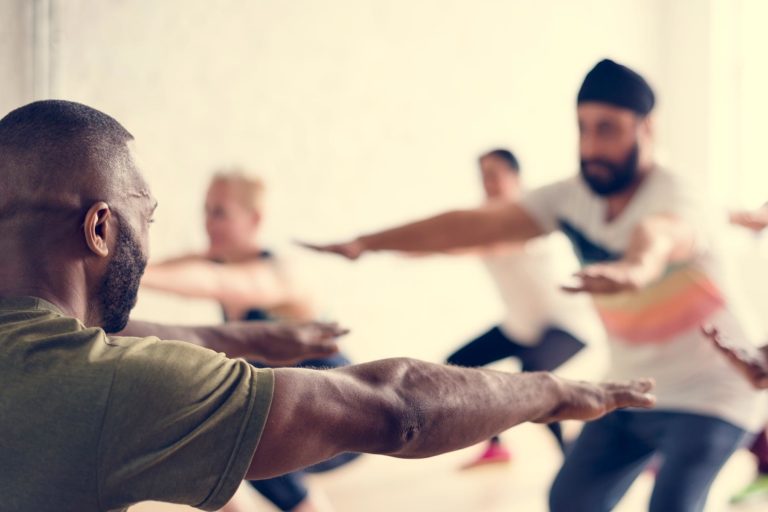Whether we like it or not, we are all bombarded with gender stereotypes. From the day we are born, we all receive subtle (and not so subtle) cues on how to be a man. From ‘boys don’t cry’ to ‘real men don’t back down from a fight’, gender stereotypes are embedded into our culture and reinforced by role models and media.
“Gender stereotypes are embedded into our culture and reinforced by role models and media.”
These ideas are not new – discussion around gender stereotypes has been around for a long time, but a recent series of studies sheds new light on the practical impact of these norms.
A 2018 Australian study involved men aged 18-30 and was conducted by The Jesuit Social Service Men’s Project. It discussed the concept of a Man Box and identified seven key themes that represent some unhealthy and damaging social pressures that men are subjected to. Men who conform to these stereotypes and agree with these statements were identified as being ‘In the Man Box’.
In 2024, a second edition of the Man Box study expanded on the findings of the 2018 study. In line with the previous study, it considered whether Australian men perceive social messages that a “real man” thinks and acts a certain way and whether men personally agree with these messages. The study also explored whether men’s attitudes predict a range of behaviours and life outcomes. The Man Box 2024 study also added a new age group, men aged 31-45 years. The study was conducted by surveying over 3,500 Australian men and conducting seven focus groups.
The unhealthy stereotypes of the Man Box
The Man Box describes a set of beliefs or rules that place pressure on men to act a certain way. These beliefs are grouped into seven themes:
- Self-sufficiency: A man who talks a lot about his worries, fears, and problems shouldn’t really get respect; Men should figure out their personal problems on their own without asking for help.
- Acting tough: A guy who doesn’t fight back when others push him around is weak; Guys should act strong even if they feel scared and nervous inside.
- Physical attractiveness: It is very hard for a man to be successful if he doesn’t look good; A guy who spends a lot of time on his looks isn’t very manly; Women don’t go for guys who fuss too much about their clothes, hair and skin.
- Rigid gender roles: It is not good for a boy to be taught how to cook, sew, clean the house or take care of younger children; A man shouldn’t have to do household chores; In heterosexual relationships, men should really be the ones to bring money home to provide for their families, not women.
- Homophobia and Transphobia: A gay guy is not a “real man”; A transgender man is not a “real man”; It’s not OK for straight guys to be friends with gay guys; It’s not OK for straight guys to be friends with trans or gender diverse people.
- Hypersexuality: A “real man” has as many sexual partners as he can; A “real man” would never say no to sex.
- Aggression and control: Men should use violence to get respect if necessary; In heterosexual relationships, a man should always have the final say about decisions in his relationship or marriage; If a guy has a girlfriend or wife, he deserves to know where she is all the time.
Study results – good and bad
It seems that despite some good progress in recent years, there is still work to be done to combat messages that uphold outdated stereotypes.
Society pressure to conform to the rules
Almost four in ten men (36%) aged 18-45 years felt societal pressure to follow the Man Box rules.
The societal pressure was particularly felt on the ‘acting tough’ rule, which requires men to act strong and fight back. Other societal pressures men felt included being the primary income earner, keeping worries and problems to themselves, and having the final say about decisions in relationships.
Agreement with the rules
Nearly a quarter of men (24%) aged 18-45 years personally believed in the Man Box rules.
The Man Box rules with strong endorsement centred on stoicism and self-sufficiency – men should act strong even if they feel scared or nervous, fight back when pushed around, and figure out their personal problems on their own without asking others for help.
Shifting attitudes
The good news is that despite the prevalence of these messages, more than 70% of respondents did not personally agree with the Man Box sentiments. This means that the Man Box rules do not represent the views of the majority of men in the study.
There is some further good news – when comparing 2018 to the 2024 study among 18-30-year-old men, these areas had the largest change in perceived social pressure:
- Men should figure out their personal problems on their own without asking others for help (20% decrease).
- Guys should act strong, even if they feel scared or nervous inside (19% decrease).
- A guy who doesn’t fight back when others push him around is weak (16% decrease).
This is a heartening indicator of shifting attitudes amongst men, showing that the Man Box rules are not the dominant norms of masculinity in Australia.
What are the consequences of being in the Man Box?
While the majority of men do not feel pressure to conform to the Man Box rules, a substantial minority still agrees.
The respondents who strongly supported and agreed with the Man Box stereotypes are more likely to experience a host of negative physical, mental and social health outcomes in their lives.
Compared to men who least endorsed Man Box norms, men who most strongly endorsed Man Box norms were more than:
- 11 times more likely to have frequently perpetrated verbal, online, or physical bullying.
- 8 times more likely to have had thoughts of suicide nearly every day.
- 6 times more likely to have had thoughts of self-harm nearly every day.
- 6 times more likely to have been displaying signs of problem gambling in the previous six months.
- 5 times more likely to have perpetrated physical violence against an intimate partner.
- 3 times more likely to have experienced little interest or pleasure in doing things nearly every day in the previous two weeks.
- Two and a half times more likely to have engaged in a potentially dangerous behaviour while intoxicated in the previous six months.
- Twice as likely to frequently experience feeling down, depressed, or hopeless.
Please remember, if you are feeling overwhelmed and need support, there are free 24/7 helplines available:










